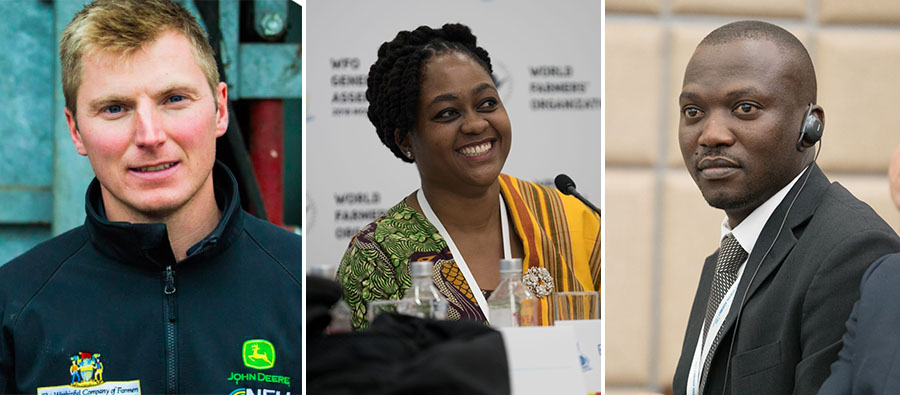As the incoming custodians of the land, young farmers tell Farming First about the importance of practising agroecology to benefit today’s generation and those to come.
With agricultural needs and challenges varying greatly around the world, farming has always needed to be adaptive and agile.
And with a changing climate bringing extreme weather and conditions, it’s more important than ever to work with nature and farm in a way that fulfils each ecosystem’s potential to feed an ever growing population.
Young farmers especially are realising the benefits of incorporating ecological processes into their agricultural systems.
“From my personal experience, we know that if we look after our farm, our livestock, the environment, we will produce better crops,” Richard Bower, a cereals farmer from Staffordshire, UK, told Farming First. “The environment is a very big part of what we do on the farm, and we are only looking after the farm for a short period of time for the next generation as well.”
One way Richard is practicing agroecology on his farm is to consider wildlife.
“Crop rotation is very important and allows birds to nest,” he added. “Something else we do on our farm is welcome bird ringers, who are very passionate about the environment and they come and count the birds on the farm. They are also using technology so they will go in the night and count the number of birds on the farm.”
In sub-Saharan Africa, where the effects of global warming hit hardest, producing more extreme temperatures, one result has been the increase of crop-eating pests such as Fall Armyworm.
Innocent Jumbe, 28, who works for a seed company in Malawi, said an agroecological approach can involve the responsible use of crop protection products.
“With climate change, all these pests coming in has been a real problem in Africa in the last year and we have been told by the government that we need to brace for impact,” Innocent said. “It’s not just about how we use chemicals but also about how we dispose of the chemicals.
“The blanket picture is that climate change is the biggest change, but we can see that people are not changing their lifestyles. We need to try to change the way that people look at things.”
Meanwhile, in Argentina, agroecology is a way to successfully support people, livestock and the environment in one ecosystem.
“Agroecology is about knowing how to work in the farm,” said Augustina Diaz Valdez, 22, a sheep farmer who is also training to be a vet. “This means knowing up to what limit you can produce and take advantage, always thinking about the environment and being sustainable.”
Dennis Kabiito, 34, a livestock and crop farmer in Uganda, agreed: “As farmers, we are stewards of the land and of the environment. It’s [about] using the right practices and the right methods at the given time.
“For example with Fall Armyworm and African swine flu – this cannot easily be controlled by organic practices but they can contribute. You need some help from chemicals.”
In South Africa, agroecology is about balancing productivity with sustainability.
“It’s about finding the right balances in terms of practices. For me, it’s about the foundation for establishing these practices,” said Brenda Tlhabane, a 37 year old farmer from South Africa.
“At the end [of the day], we are the consumers of nature so we need to do it in a sustainable manner and make sure that we leave a legacy.
“As a young person, I need to be profitable and make sure that I am preserving the environment and planet as a whole. I would want our policy makers to look at the overall approach and think how do we become sustainable in terms of soil health and making sure that we preserve good quality soils as well?”



